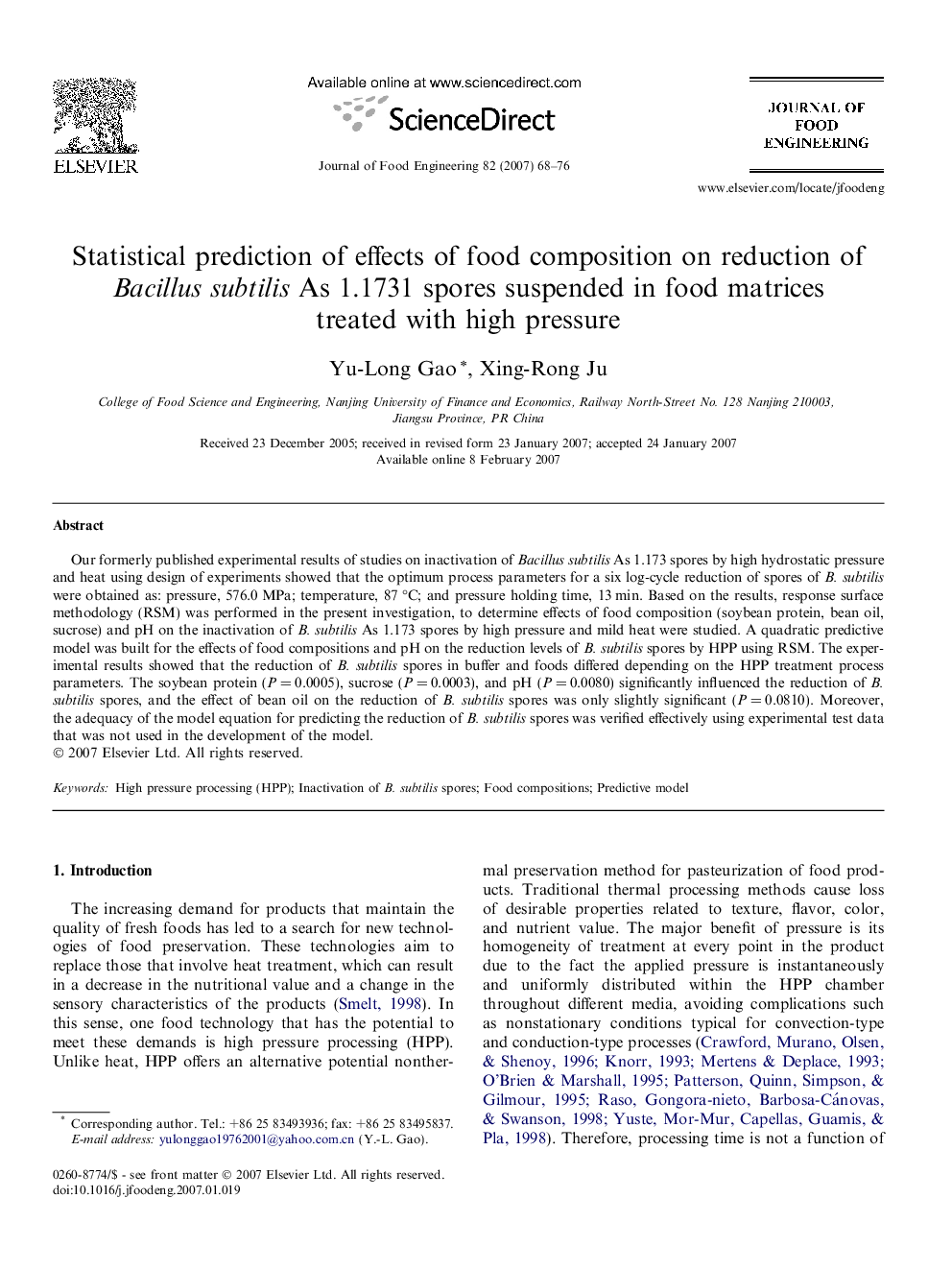| Article ID | Journal | Published Year | Pages | File Type |
|---|---|---|---|---|
| 224696 | Journal of Food Engineering | 2007 | 9 Pages |
Our formerly published experimental results of studies on inactivation of Bacillus subtilis As 1.173 spores by high hydrostatic pressure and heat using design of experiments showed that the optimum process parameters for a six log-cycle reduction of spores of B. subtilis were obtained as: pressure, 576.0 MPa; temperature, 87 °C; and pressure holding time, 13 min. Based on the results, response surface methodology (RSM) was performed in the present investigation, to determine effects of food composition (soybean protein, bean oil, sucrose) and pH on the inactivation of B. subtilis As 1.173 spores by high pressure and mild heat were studied. A quadratic predictive model was built for the effects of food compositions and pH on the reduction levels of B. subtilis spores by HPP using RSM. The experimental results showed that the reduction of B. subtilis spores in buffer and foods differed depending on the HPP treatment process parameters. The soybean protein (P = 0.0005), sucrose (P = 0.0003), and pH (P = 0.0080) significantly influenced the reduction of B. subtilis spores, and the effect of bean oil on the reduction of B. subtilis spores was only slightly significant (P = 0.0810). Moreover, the adequacy of the model equation for predicting the reduction of B. subtilis spores was verified effectively using experimental test data that was not used in the development of the model.
